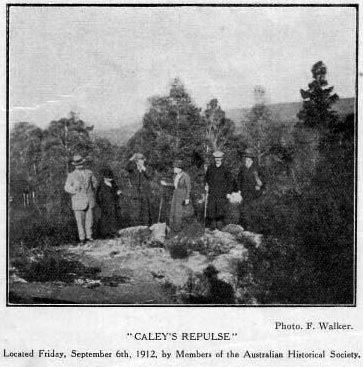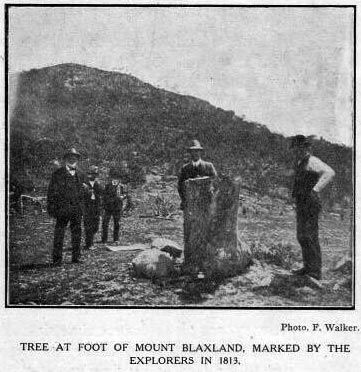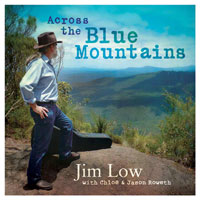JOURNAL OF A TOUR OF DISCOVERY ACROSS THE BLUE MOUNTAINS, in the year 1813, by Gregory Blaxland
The timber observed this day still appeared unfit for building. The stones at the bottom of the rivers appeared very fine, large-grained, dark coloured granite, of a kind quite different from the mountain rocks, or from any stones which they had ever seen in the colony. 41 Mr. Blaxland and one of the men nearly lost the party to-day by going too far in the pursuit of a kangaroo.
 They now conceived 42 that they had sufficiently accomplished the design of their undertaking, having surmounted all the difficulties which had hitherto prevented the interior of the country from being explored, and the colony from being extended. They had partly cleared, or, at least, marked out, a road by which the passage of the mountain might easily be effected. Their provisions were nearly expended, their clothes and shoes were in very bad condition, and the whole party were ill with bowel complaints. These considerations determined them therefore, to return home by the track they came.
They now conceived 42 that they had sufficiently accomplished the design of their undertaking, having surmounted all the difficulties which had hitherto prevented the interior of the country from being explored, and the colony from being extended. They had partly cleared, or, at least, marked out, a road by which the passage of the mountain might easily be effected. Their provisions were nearly expended, their clothes and shoes were in very bad condition, and the whole party were ill with bowel complaints. These considerations determined them therefore, to return home by the track they came.
On Tuesday, the 1st of June, they arrived at the foot of the mountain which they had descended, where they encamped for the night. The following day they began to ascend the mountain at seven o'clock, and reached the summit at ten; they were obliged to carry the packages themselves part of the ascent. They encamped in the evening at one of their old stations. One of the men had left his great coat on the top of the rock, where they reloaded the horses, which was found by the next party who traversed the mountain [Mt. York].
On the 3rd they reached another of their old stations. Here, during the night, they heard a confused noise arising from the eastern settlements below 43, which, after having been so long accustomed to the death-like stillness of the interior, had a very striking effect. On the 4th they arrived at the end of their marked track, and encamped in the forest land where they had cut the grass for their horses. One of the horses fell this day with his load, quite exhausted, and was with difficulty got on, after having his load put on the other horses.
The next day, the 5th, was the most unpleasant and fatiguing they had experienced. The track not being marked, they had great difficulty in finding their way back to the river, which they did not reach till four o'clock p.m. 44 They then once more encamped for the night to refresh themselves and the horses. They had no provisions now left except a little flour, but procured some from the settlement on the other side of the river. 45 On Sunday, the 6th of June, they crossed the river after breakfast, and reached their homes, all in good health. The winter had not set in on this side of the mountain, nor had there been any frost.


